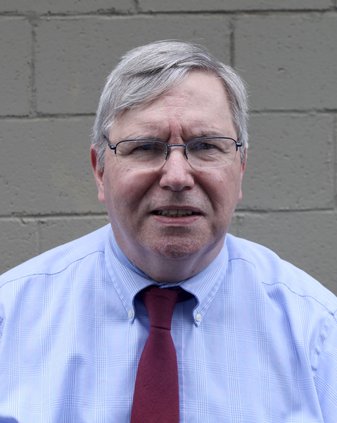The website socialcatfish.com includes information on how people can protect themselves from scammers, as well as other useful info.
I won $1.1 million — actually, 950,000 Euros — in a “Christmas promotion lottery” and I wanted to share the news with all of you.
I don’t recall entering this lottery or how I would have qualified for it. But I received an email giving me “final notification” the money is waiting for me and all I have to do is provide my name, address, phone number and more to whoever or whatever sent this to me.
It seems to be an epidemic now as scammers all over the world, forced to be homebound by COVID-19, have even more time to find ways to sit in front of a computer and cheat people out of their money.
One of the more evil scams I’ve heard about lately was performed by a team of criminals who operate by convincing someone —searching for companionship after the loss of a spouse — to give up their money.
The website socialcatfish.com recently publicized the story of an Albany, Georgia, woman — identified by a TV station as Debbie Morrison — who was her husband's caregiver for the last five years of his life.
After 28 years of marriage, he died at age 56, leaving her alone to care for her son who has Down syndrome.
Her loneliness and need for companionship led her to go on the Christian Mingle dating website where she met someone who said he was an Italian engineer and contractor, according to socialcatfish and a news report from WFXL-TV in Albany.
In reality, he was a Nigerian dating scammer who used photos of a Brazilian surgeon and Oklahoma pastor to befriend women and eventually ask for money, according to WFXL and socialcatfish.com.
In this case, Debbie gave the scammer $20,000 after talking to a man and woman who gave information that actually checked out — and was likely stolen, police say.
Other scams appeal to the recipient’s greed.
Lottery scams may use the names of legitimate overseas lotteries — often Spanish lotteries — so that if you do some superficial research the scam will seem to be a legitimate venture, according to the Australian Competition and Consumer Commission.
The scammers then charge a fee for the “attorneys” they say they use; keep delaying information on how you will receive your winnings; and use your information to gain access to your bank account.
The Better Business Bureau is warning of scammers “taking advantage of people’s get-rich-quick dreams by promoting money flipping’ scams on social media, and BBB is seeing dozens of reports each month about these cons.”
Typically, the scam involves someone bragging about having “flipped” a couple hundred dollars into thousands, the BBB reports.
“Want to do it, too? It’s easy. Just message the account holder.”
The “investor” will ask you to send money — typically $300 to $800 — through the Cash App digital money transfer app and the receiver then promises to “invest” your money in the stock market where it multiples in a few days.
“When you try to get your money back, the scammer claims that Cash App charges a fee to return it. In other cases, the con artist alleges that you first need to pay taxes to the Internal Revenue Service. Some victims report sending thousands of dollars in phony fees.
“Every dollar you pay for money flipping — from the initial “investment” to the alleged taxes — is going straight into the scammer’s pocket. You won’t see any of your money again.”
How about this appeal which goes straight to your desire to help others?
An emailer told me the “United Nations Organization has chosen you as Ambassadors/Humanitarian officers to the United Nations High Commissioners of Refugees (UNHCR).”
“Humanitarian work is a material and logistic assistance to people in need, homeless, refugees, victims of natural disasters, war and famines.
“The United Nations Organization will allocate funds for this Humanitarian work in which an Ambassador will ensure there is food, good water, education, hospitality, homes and shelter for the poor, orphans and refugees in the society.”
An Ambassador receives a “UN diplomatic passport (issued) by the UN Authority to enable him travel to any country his or her humanitarian service is needed. Also, he or she will be paid some allowances on a monthly basis for his humanitarian duties.”
“Kindly get back to us if you are interested in this appointment. Sincerely Yours, Dr. Patrick Doku.”
Again, I have no idea how I got on Dr. Doku’s list of potential scam victims other than having an email address — or being on a legitimate organization’s email list.
Please check out anything that promises you instant fame or fortune, romance with the person of your dreams, or free international travel. It likely will cost you in one way or another.
Tom Spigolon is news editor of The Covington News. He may be reached at tspigolon@covnews.com.




